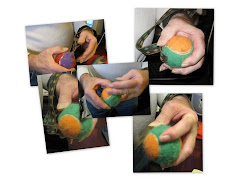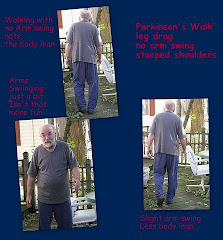 One last area to discuss when speaking about depression is Seasonal Affective Disorder - SAD.
One last area to discuss when speaking about depression is Seasonal Affective Disorder - SAD.It isn't just the winter blues because you feel cooped in even when you have to go out and about. SAD is more serious than that. It affects patients and caregivers alike. Some people have SAD even in the spring and summer. And treatment can be the same for everyone.
Winter SAD symptoms:
Weight gain
Carb cravings
Oversleeping - waking too early
Indecisiveness
Decreased sex drive
Apathy
Feelings of hopelessness
Anxiety
Suicidal thoughts
Lack of concentration or difficulty concentrating
Difficulty processing information
Summer-Spring SAD symptoms:
Anxiety
Insomnia
Irritability
Agitation
Loss of appetite
Weight loss
Increased sex drive
Yes there is even Reverse SAD which involves manic symptoms which makes sense when you think about it. Symptoms include hypperactivity, increased social activity, extreme enthusiasm, persistent UP mood.
 For roughly 80 percent of SAD sufferers, melatonin levels peak just when it’s time to wake up. For those people, morning light therapy is best. For others, melatonin drops too soon, and they find themselves waking up in the middle of the night. Those patients may find that evening light therapy can work better.
For roughly 80 percent of SAD sufferers, melatonin levels peak just when it’s time to wake up. For those people, morning light therapy is best. For others, melatonin drops too soon, and they find themselves waking up in the middle of the night. Those patients may find that evening light therapy can work better.Why does SAD occur? And why would PD patients be likely to have SAD?
Because many older PD patients home-bind themselves, it is quite likely that their vitamin D levels as well as melatonin level drop as their exposure to natural sunlight is reduced. SAD is circadian in that it is a winter disorder. Less sunlight means decreased melatonin. Melatonin, a powerful anti-oxidant and free radical scavenger, has been shown to provide neuroprotection in PD. This endocrine plays a part in the biologic regulation of circadian rhythms, of mood and sleep.
Difference between sleeping in summer and winter:
Summer=wake to sun/sleep when dark
Winter=wake in dark/sleep in dark
Lack of sunlight=reduced melatonin
Other influences of the neurotransmitters
Stress=reduced serotonin
Lack of sleep=reduced serotonin
Lack of activity/boredom=reduced dopamine/norepinephrine
Poor nutrition (lack of the stress vitamins B6, C and E)=reduced serotonin
and by the way, deionized air=reduced serotonin - summer produces more negative ions.
SAD symptoms:
Weight gain
Carb craving
Oversleeping
Indecisiveness
Decreased sex drive
Apathy
Anxiety
Suicidal thoughts
Lack of concentration-difficulty focusing
The treatment for SAD is sitting in front of a light box or lamp for at least 1/2 hour a day- an hour if necessary. An alternative is a dawn light which simulates sunrise as it gradually brightens. In bright light therapy the light is usually a full spectrum light 10,000-25,000 lux. Although treatment is done with the eyes open, one should not be looking at the light. There are also blue lights which can be used.
My sister had another idea. She has replaced the bulbs in her kitchen fixures with full spectrum bulbs. The only problem with doing this is that for most people the treatment should be done in the morning and the lights in her kitchen are rarely on before dark.
I would suggest having breakfast or morning coffee in front of the light or under it. There are bulbs available so that you would only need a lamb with the shade removed or one that you can tilt in your direction. Perhaps a lamp could be set up next to the computer monitor for your morning read of email and news. This way you are not squeezing in yet another therapy but rather multi-tasking in an easy way.
bulbs available so that you would only need a lamb with the shade removed or one that you can tilt in your direction. Perhaps a lamp could be set up next to the computer monitor for your morning read of email and news. This way you are not squeezing in yet another therapy but rather multi-tasking in an easy way.
Because many older PD patients home-bind themselves, it is quite likely that their vitamin D levels as well as melatonin level drop as their exposure to natural sunlight is reduced. SAD is circadian in that it is a winter disorder. Less sunlight means decreased melatonin. Melatonin, a powerful anti-oxidant and free radical scavenger, has been shown to provide neuroprotection in PD. This endocrine plays a part in the biologic regulation of circadian rhythms, of mood and sleep.
Difference between sleeping in summer and winter:
Summer=wake to sun/sleep when dark
Winter=wake in dark/sleep in dark
Lack of sunlight=reduced melatonin
Other influences of the neurotransmitters
Stress=reduced serotonin
Lack of sleep=reduced serotonin
Lack of activity/boredom=reduced dopamine/norepinephrine
Poor nutrition (lack of the stress vitamins B6, C and E)=reduced serotonin
and by the way, deionized air=reduced serotonin - summer produces more negative ions.
SAD symptoms:
Weight gain
Carb craving
Oversleeping
Indecisiveness
Decreased sex drive
Apathy
Anxiety
Suicidal thoughts
Lack of concentration-difficulty focusing
The treatment for SAD is sitting in front of a light box or lamp for at least 1/2 hour a day- an hour if necessary. An alternative is a dawn light which simulates sunrise as it gradually brightens. In bright light therapy the light is usually a full spectrum light 10,000-25,000 lux. Although treatment is done with the eyes open, one should not be looking at the light. There are also blue lights which can be used.
My sister had another idea. She has replaced the bulbs in her kitchen fixures with full spectrum bulbs. The only problem with doing this is that for most people the treatment should be done in the morning and the lights in her kitchen are rarely on before dark.
I would suggest having breakfast or morning coffee in front of the light or under it. There are
 bulbs available so that you would only need a lamb with the shade removed or one that you can tilt in your direction. Perhaps a lamp could be set up next to the computer monitor for your morning read of email and news. This way you are not squeezing in yet another therapy but rather multi-tasking in an easy way.
bulbs available so that you would only need a lamb with the shade removed or one that you can tilt in your direction. Perhaps a lamp could be set up next to the computer monitor for your morning read of email and news. This way you are not squeezing in yet another therapy but rather multi-tasking in an easy way. Yes there are other treatments but for PD patients light therapy is probably the safest and most direct as it will let your body create the balance.
We should have posted this earlier but one of us was in denial about having SAD.














No comments:
Post a Comment
Welcome to Parkinsons Focus Today.
We are delighted to hear from you by comment here
or through email as found in Contact Us.
Please do not include email addresses if leaving a comment online.
Email addresses are used only for email responses.
Spammers take note: your messages will not be published. The comments section is for an exchange of ideas, not for backlinks.